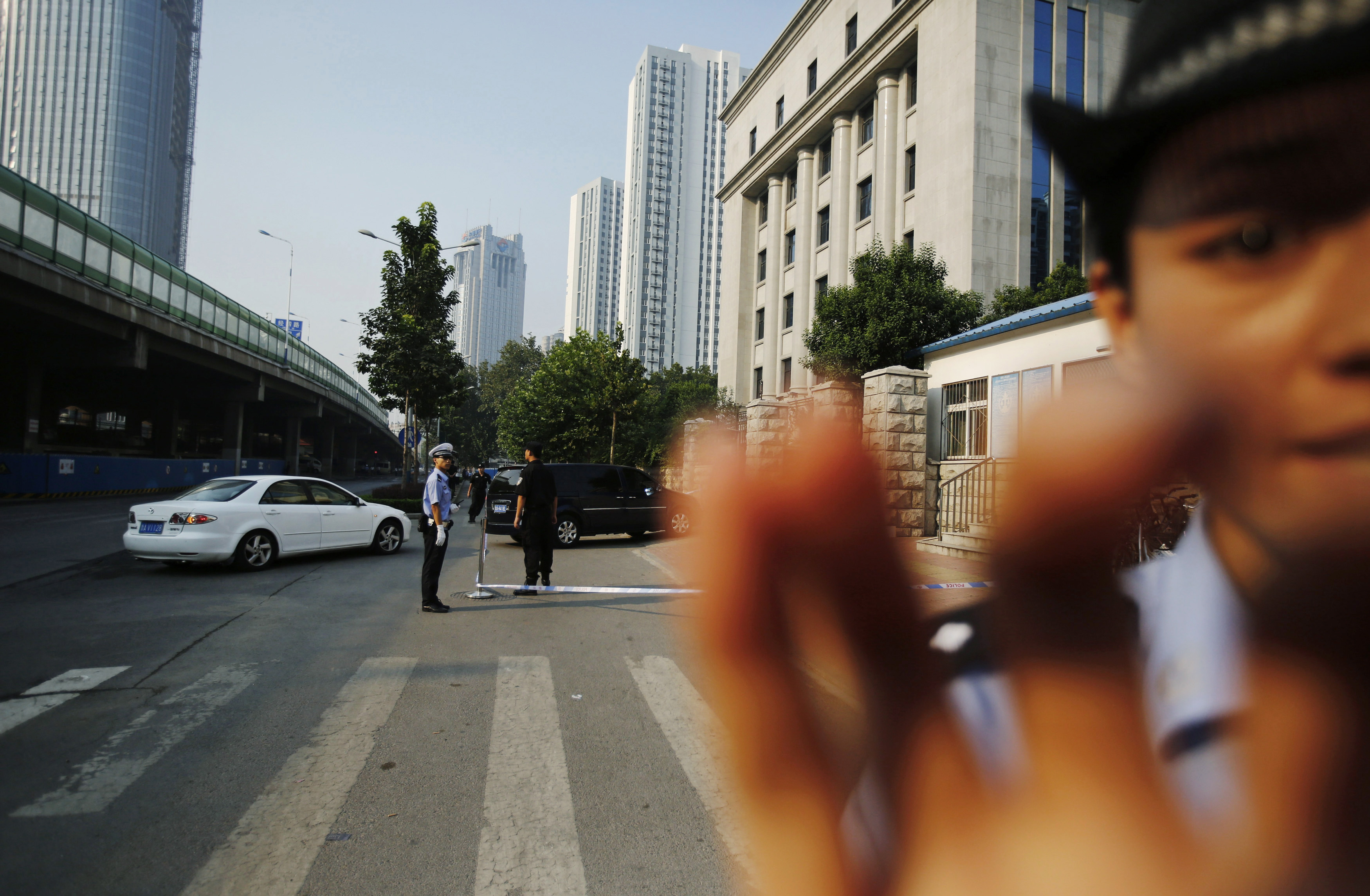In China, Being Retweeted 500 Times Can Land You in Jail
A teenager in Gansu Province who commented on police brutality has been detained as part of the government's crackdown on “online rumors.”

As of last week, posting a message that the Chinese government deems inaccurate on social media platforms can get you three years in the slammer, provided it gets 500 retweets (or their equivalent) or 5,000 views. At least, that’s what the law said. But would the new policy, part of the Chinese government’s draconian crackdown on “online rumors,” be enforced?
The answer seems to be yes. Wednesday afternoon, police in Zhangjiachuan County, Gansu province, detained a local teenager for “disrupting the social order” when the teen’s post on microblogging service Sina Weibo about a suspicious death went viral, reports the Beijing Times. The teen’s remarks were the sorts of Weibo “tweets” that have provided a crucial source of information for others as they report on stories that the media, which are state-controlled, are late or unwilling to report on.
The death occurred on Sep. 12, according to the Beijing Times, in Zhangjiachuan, a sleepy, hill-country backwater with a population of 320,000. Passersby discovered a local man on the sidewalk in front of a karaoke bar suffering from head wounds apparently incurred from a fall. He died before the police reached the scene. Though the local authorities have since ruled the death accidental, there’s some question as to what exactly happened. According to the police, the dead man’s relatives spread rumors that he’d been beaten to death first and then thrown from a window.
On Sep. 14, the paper’s report continues, the 16-year-old suspect, whose surname is Yang, posted messages to Weibo saying, “After the 9/12 Zhangjiachuan murder case happened, the police didn’t act. Worse, they quarreled with the crowds and even beat up the relatives of the deceased.” He also posted that the “police forcibly detained the deceased’s family members, and clashed with the masses” and that “The legal representative of Diamond International KTV [the scene of the death] is Su Jian, the vice president of the Zhangjiachuan County People’s Court.”
It’s unclear which of these posts was retweeted more than 500 times (curiously, the Beijing Times reporter said none of them had been). And under the new law, “online rumors” are only illegal if they were created to harm someone else.
But police forces around China have already used the law to charge people for simply getting the death toll of a car accident slightly off. And Yang did get some facts wrong, according to the Beijing Times. The legal representative of Diamond International KTV isn’t a court official; the representative is the wife of a county deputy police head named not Su Jian but Su Jianzhong, says the paper.
Given that Yang’s remarks certainly didn’t put the police in good light, he and his family should probably be worried—and for that matter, the rest of the country should too.
